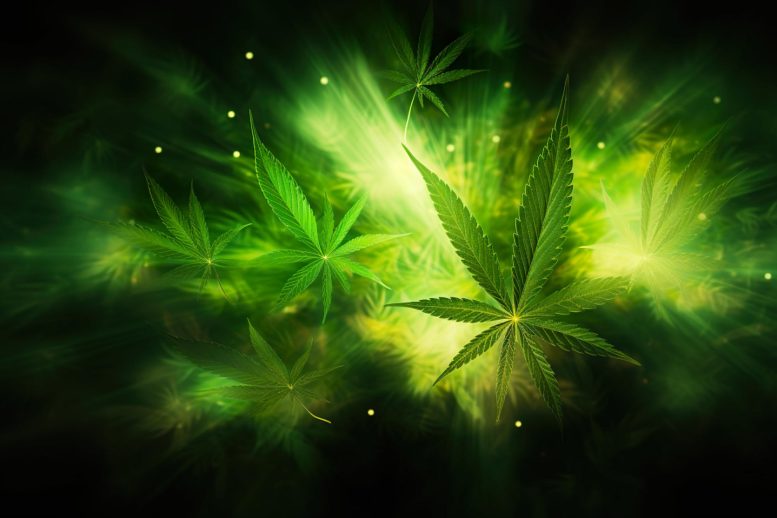
Researchers from the Institute of Pharmacy in Jena studied the anti-inflammatory effects of cannabinoids, particularly focusing on CBD (cannabidiol). They found that CBD activates an enzyme leading to inflammation resolution and believe these findings could result in new treatments for inflammatory diseases.
An international research team has clarified the mode of action of cannabinoids in inflammation.
The German federal government recently made the contentious choice to decriminalize the ownership and purchase of minor quantities of cannabis.
Should the German legislature approve the draft bill, the “Cannabis Act” is set to be implemented the following year. Many believe this action is long-awaited, while others persistently caution about the health dangers associated with cannabis consumption.
The Jena researchers and their colleagues are now taking a different look at cannabis – the traditional medicinal plant – with a study published in the journal Cell Chemical Biology.
The team from the Institute of Pharmacy investigated how certain ingredients from the cannabis plant counteract inflammation. It was already known from previous studies that cannabis is not only an analgesic and an antispasmodic but also has an anti-inflammatory effect.
“However, the reason for the anti-inflammatory effect was largely unclear until now,” says Dr. Paul Mike Jordan, who led the study together with Prof. Oliver Werz.
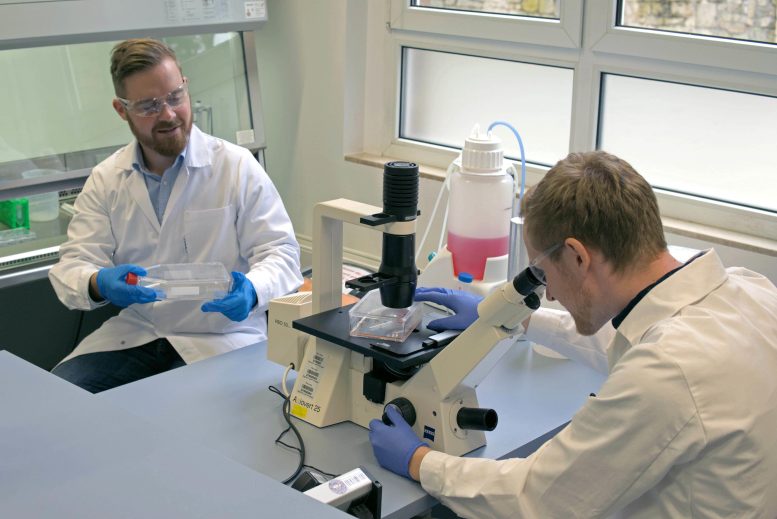
Dr. Paul Mike Jordan (l.) investigates the actions of cannabinoids in humans with Lukas K. Peltner (r.). Credit: Anna König
The researchers studied how different cannabinoids, including the psychoactive THC (tetrahydrocannabinol) and CBD (cannabidiol), which are already found in freely available products today, act on human immune cells. “We found that all eight cannabinoids we studied had anti-inflammatory effects,” says Lukas Peltner, doctoral student and first author of the study. “All the compounds we studied were found to inhibit the formation of pro-inflammatory messenger substances in cells while enhancing the formation of inflammation-resolving substances.”
CBD induces a switch in immune cells
CBD in particular proved to be highly effective and the team investigated it in more detail with regard to its mode of action. The researchers were able to determine that CBD activates the 15-lipoxygenase-1 enzyme, which triggers the production of inflammation-resolving messenger substances that subsequently cause the inflammation to subside.
“CBD thus induces a switch in the affected cells, so to speak, which steers the inflammatory process from the promoting to the inhibiting side,” explains Dr. Jordan. The researchers were also able to confirm these results, which were obtained in cell cultures, in animal experiments on mice.
In the long term, the insights gained could lead to new therapeutic strategies for treating inflammatory diseases, the researchers conclude. The focus should be on CBD, which was the most effective cannabinoid in the study. Previously approved preparations with cannabinoids contain CBD, “but also the psychoactive THC, which can be associated with a variety of side effects,” notes Dr. Jordan. Therapeutics containing only CBD would reduce this problem.
Reference: “Cannabidiol acts as molecular switch in innate immune cells to promote the biosynthesis of inflammation-resolving lipid mediators” by Lukas K. Peltner, Lars Gluthmann, Friedemann Börner, Simona Pace, Robert K. Hoffstetter, Christian Kretzer, Rosella Bilancia, Federica Pollastro, Andreas Koeberle, Giovanni Appendino, Antonietta Rossi, Marcia E. Newcomer, Nathaniel C. Gilbert, Oliver Werz, and Paul M. Jordan, 29 August 2023, Cell Chemical Biology.
DOI: 10.1016/j.chembiol.2023.08.001
The research work has been carried out within the Collaborative Research Centres “PolyTarget” and “ChemBioSys” of the University of Jena, Germany and has been funded by the German Research Foundation.

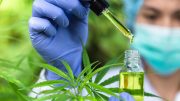
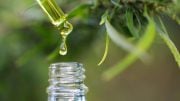
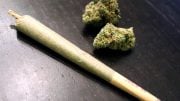

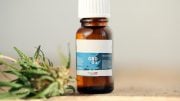
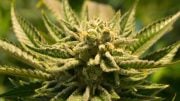

When syphilis first appeared in Europe, doctors attempted to treat it with toxic mercury compounds. The trick was to find a dosage that just killed the spirochete, and not also the patient. There are almost always side effects to drugs (One can drink too much water!), which vary with the individual. Even if cannabinoids are anti-inflammatory, it doesn’t mean that they are the best option, just as mercury compounds weren’t the best option for treating syphilis. One of the problems is the ability of humans to rationalize their behavior, along with the frequent psychological addiction to cannabis. The fact that the researchers have focused on just cannabinoids, rather than do a more broad spectrum search and look for commonalities, suggests that there is a hidden agenda, which they may not even be aware of.
What about the not so hidden agenda for keeping alcohol and tobacco legal even when they’re much more harmful than cannabis? Or what about the hidden agenda to restrict individuals from using what they decide (without affecting others’ liberties), to alter their consciousness states? Or maybe that’s just the agenda of people willing to oppose to whatever they don’t personally like.
Alcohol has a special position in western societies because it was discovered very early that wine could be made from grapes that would otherwise have to be thrown away. The alcohol turned water that was problematic into something that was potable. It is firmly entrenched in Kosher foods, the Catholic Sacrament, and most Mediterranean meals. We tried to restrict it and the ‘cure’ was worse than the disease. It has been with us so long that Western Europeans are better able to de-doxify it than Native Americans and many other groups.
I personally don’t believe that tobacco is worse than cannabis. Burning matter releases carbon monoxide, formaldehyde, benzene, and unspecified ‘coal tars.’ It also produces very small particles that can lodge in the lungs. Your remarks are exactly what I had in mind when I mentioned rationalizing behavior. We have actually done a pretty good job of reducing the public use of tobacco compared to 60 years ago. Then, there are people like yourself who give no thought to forcing others to breath in second-hand marijuana smoke. I shouldn’t be forced to breath any kind of second-hand smoke. That is not considerate or responsible behavior.
There are other, more healthy ways to consume cannabis. Ways that do not infringe on anyone else’s right to breathe clean air. However, there are far more dangerous things in our air and you’d have to be very close or in an enclosed area for someone else’s smoking to be of concern to you.
“… there are far more dangerous things in our air …”
Two wrongs don’t make a right.
“… you’d have to be very close or in an enclosed area for someone else’s smoking to be of concern to you.”
I can tell you from personal experience that you are wrong. I have a very sensitive nose.
I don’t need studies about things tmI already know. Many cannabinoids are anti-inflammatory including THC. Furthermore, THC is synergistic with other cannabinoids and it also provides nausea relief. We should not try to shun THC just because of the psychedelic effects. I am sure THC is good for brain health in other ways. It’s time to admit it, cannabis is one of the best plants on earth for man. Plain and simple
“Plain and simple”
An objective analysis from an unbiased observer, with years of personal experience.
You appear to be just as bias.
My first comment was, “Even if cannabinoids are anti-inflammatory, it doesn’t mean that they are the best option, …” I’m not advocating against medical use, I’m just questioning whether there might be better options that are being overlooked because of a need to rationalize a psychological addiction. I’m not making unsupported claims of anything being the greatest thing since sliced bread. I’m suggesting looking at the whole picture by people without a need to rationalize their behavior — the classic disinterested observer without any investment in a particular outcome of research.
Hey like Wow man. I can dig it!
Suffer from compartmental syndrome from inflammation from pelvis to ankles. disc disease, depression,anxiety & severe PTSD. Cannibis changes my life. Any studies I could become a test patient?
Funny how the author feels this is responsible reporting, when there’s a dozen currently circulating articles that say the daily use of cannabis is detrimental to mental stability and accuity, that thc build up has proven harmful in multiple accounts in multiple studies on mulriple affected areas of the body.
The alcohol and big pharma lobbyists in Congress want to criminalize the recreational and medical use of marijuana.I wonder why? Ya think?
There’s an equal amount that confirms benefits. There are a lot of factors that determine harms/benefits. I’ve known many who have used cannabis for the majority of their lives w no obvious physical or mental issues. Many who are quite healthy even. Chronic inflammation is the biggest killer of our society. Processed foods are far more dangerous.
The Hippocratic Oath says, “First, do no harm.” Just because many, or even most, do not experience issues does not excuse allowing harm to come to those who are sensitive. There are many people who have abused alcohol and tobacco, and lived to ripe old ages. That is not a defense for not protecting those who are more susceptible to the effects. It sounds like you are advocating establishing acceptable social behavior based on anecdotal evidence.
I’m with you there, Linda! Dyslexia, sensory perception sensitivity (SPS), depression, anxiety & PTSD…I wouldn’t be here today were it not for the miracle of marijuana. Eye twitching, deep yawning and stretching eyes, severe tremors, and panic attacks subsided at 13 when I found my first joint. Fifty years of heavy habitual use later, I don’t use alcohol or tobacco and have maintained steady employment as a machine repair technician. Planning on retirement next year at 64 and have everything in order.
Thanks for your concern Mr. Wier, (HS counselor), but you couldn’t have been more wrong!! I’ve had a fabulous life/marriage and still going strong with Zero health issues.
Reefer Madness that Dad!
Great post! It’s crucial to approach the use of cannabis or CBD products for their potential anti-inflammatory effects with caution. Consultation with a healthcare professional is advisable, especially if you are considering using these substances for medical purposes. Additionally, the legality of cannabis and its products should be considered based on your location, as laws can vary significantly from one place to another.